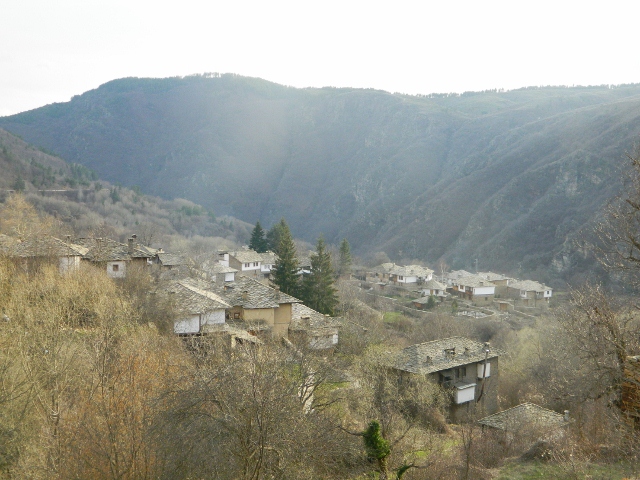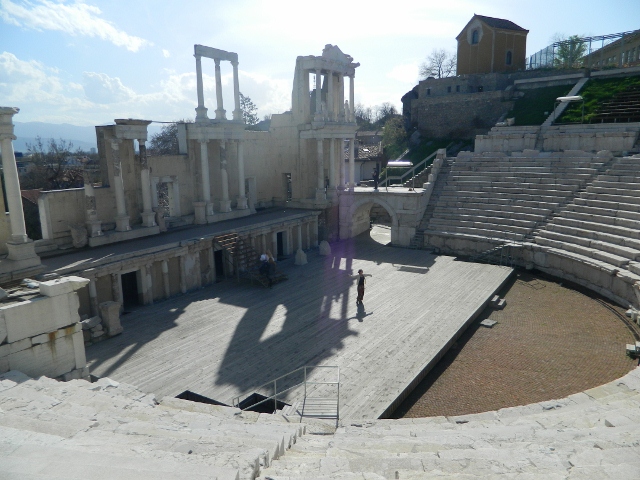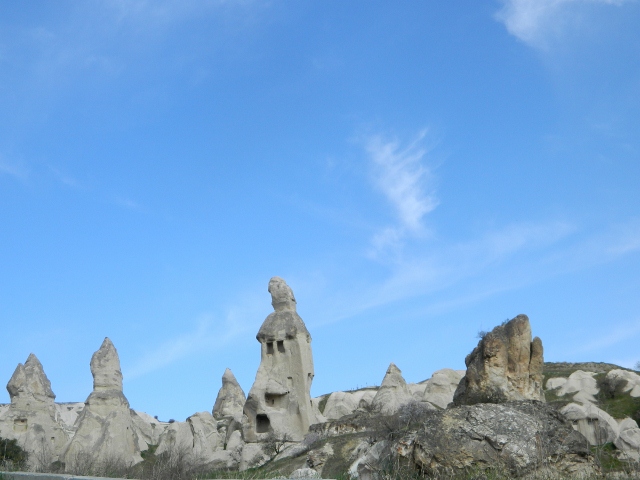The fairy chimneys, as it turns out, were the name that the genius, or over-romantic imagination, of someone in Cappadocia’s tourism department assigned to the giant, fanciful (and often very phallic) rock formations that cover the landscape.
Rather than go through the last two weeks I spent in Turkey, Bulgaria, Serbia and Bosnia, I would like to tell you a story for a change in pace. Or rather, I would like to retell a traditional Bulgarian folktale that I read while visiting my friend’s family in Plovdiv. In recent months I have been rediscovering my love of stories, and having some fun with the art of storytelling whenever it occurs to me. I hope you enjoy this one; it is called “Glavcho.”
~
Once upon a time,a third son was born to a peasant family. He had an ugly, misshapen body and a large, ugly head, so everyone called him Glavcho (big head, in Bulgarian). His older brothers teased him mercilessly, and the other village children always picked on him, but rather than fight back, as Glavcho grew bigger and stronger he stuck more and more to himself. He gave to his animals all the tenderness and care that was not shown to him. Sitting in the pasture, watching the smoke cult into the sky above the slate roofs of his village, Glavcho would sing to his horses and speak to them of his hopes and dreams.
Now, some animal had been breaking into Glavcho’s family’s fields at night and eating their crops, so his father instructed his sons to keep watch and find out who was causing the trouble. The first night, the eldest son set himself up at the edge of the field with a lantern and a length of rope, certain he would catch the animal and win his father’s approval. Dawn, however, found him fast asleep; when his family awoke, he said, “I kept watch all night long, but I saw nothing!”
The second night, the middle son kept watch. He too awoke to the rising sun and insisted he had seen nothing. And so the third night Glavcho had his turn. He took the lantern and the rope and sat watch. Though his eyelids drooped and his head grew heavy, he did not fall asleep. Around midnight, a beautiful white stallion appeared at the edge of the field, glowing in the moonlight, and began to munch on the carrots. Silently, Glavcho tied his rope into a loop, crept up behind the horse, and slipped the noose over its head!
“Please,” said the horse, “let me go and I promise I will never eat your family’s crops again!”
Glavcho looked at him dubiously. “I’m supposed to catch you and bring you to my father…”
“Glavcho, you are all the horses’ favorite. They all say how kind and gentle you are. You must help me and let me go!”
“Really? I didn’t know they talked about me.” Glavcho glowed at the rare compliment, and after a moment’s thought, released the white horse.
“Because you have done me this favor, I will always help you in times of need,” said the horse, lowering his head in thanks. “All you must do is go into the forest, clap three times and call, ‘horse, come to my aid!’ and I will be there.” And with that, he disappeared into the night.
In the morning, Glavcho told his father and brothers about the extraordinary thing that had happened to him, but they laughted at him and scolded him for falling asleep and dreaming instead of keeping watch. Elated by his discovery, Glavcho did not care, and he went off to take a nap.
Later that day, a royal herald arrived in the village to announce a competition. There would be three days of horse races, and the victor would win the princess’ hand in marriage. The King invited every able man in the kingdom to compete. Glavcho’s brothers heard the proclamation and they were talking about the upcoming festivities excitedly when Glavcho awoke.
“Brothers, may I come too?” He asked bashfully.
“You?” The said, incredulous. “Why, you would only scare the young princess and embarrass us. Why don’t you stay with your horses.”
Desperately wanting to see the races (to compete was beyond the scope of his imagination), Glavcho wandered into the forest after supper. The tall trees cast a murky gloom around him in the gathering night. He clapped his hands three times and called, “horse, come to my aid!” and like that the beautiful white horse came trotting into the clearing, glowing as always.
The horse knew already what was Glavcho’s problem. He said, “Return to this spot tomorrow after your father and brother have left for the races. Bring your sack for collecting mushrooms. I will meet you.”
And so, the next morning Glavcho took his sack and returned to the clearing. The white horse was waiting. “Look in the sack,” he said. Glavcho reached into the sack and brought out the most beautiful set of clothing he had ever seen. The fabric was softer than silk, and trimmed with gold. When he put it on, Glavcho became a tall, handsome young man, broad shouldered and strong. He leapt upon the white horse and they galloped to the castle.
All heads turned to watch as they entered the field. Both horse and rider shone brilliantly, and no one could look away. “Come now,” said Glavcho, “let any man who wishes to compete against me come and race!” No other riders stepped forward. The white horse galloped around the track with unparalleled speed, and did not stop running until he had reached the clearing in the forest.
Glavcho took off his beautiful clothes, filled the sack with mushrooms, and returned home. His father and brothers followed shortly. Throughout dinner, they talked of nothing but the mysterious rider at the races.
The next morning, Glavcho again set out for the forest with his sack to meet the horse. Again everyone turned to watch them with wonder when they arrived at the castle. Again they raced around the track, unrivaled. Again, Glavcho’s father and brothers spoke of nothing else at dinner, their voices thick with awe.
The third day of the races, when Glavcho called out “let any man who wishes to compete against me come and race!” several of the strongest young men in the kingdom stepped forward. The white horse sped forward, leaving the other riders far, far behind. Glavcho stood went before the princess and bowed deeply. Taking the ring that she offered to him, the winner, he said, “tomorrow I shall return for the wedding!” And with that he leapt back onto the white horse and they ran home.
When Glavcho’s father and brothers returned, talking of the upcoming wedding, Glavcho asked humbly, “do you think we will be invited?”
His brothers laughed. “Why would the King invite the likes of us?”
Glavcho took from his pocket the ring that the Princess had given him. Recognizing it at once, his family exclaimed joyfully and the entire village rejoiced at his good fortune. And Glavcho, we assume, lived happily ever after.
 |
| A traditional Bulgarian village. |
~
Fables are nice, with their ready morals at the end (don’t steal, don’t lie, etc., etc.), but I really love these folk stories, with their more oblique messages and meanings. What are we meant to take from this story? That less attractive men should dress nicely to get the girl? That our families will love us more if we make money? That we should be nice to horses? The lesson here is actually a bit questionable when we consider that Glavcho only succeeds in life by changing his appearance.
For me, though, it doesn’t matter. However we might interpret them, folktales are stories first and foremost, meant to entertain, and it is for this underlying simplicity of purpose that I love them.
~
Location update: After flying through Bulgaria, Serbia, Bosnia and Montenegro, I am off to Croatia tomorrow—the Balkan adventure continues!
 |
|||||
| Roman ruins in Plovdiv, Bulgaria. |
